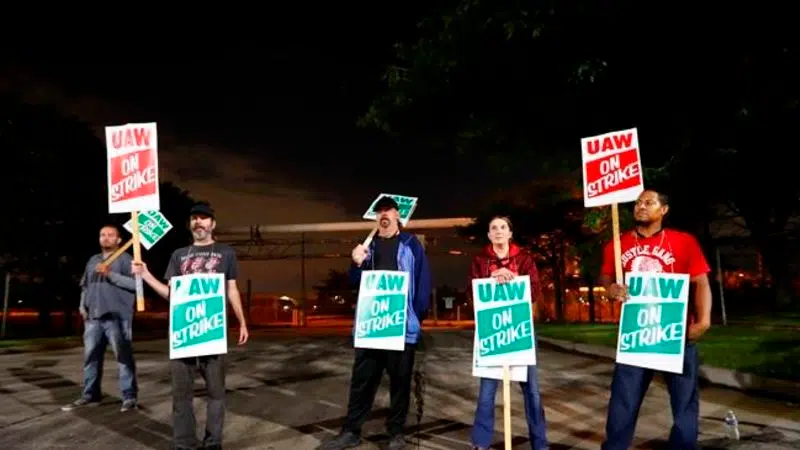
UAW official: GM’s offer came too late to avoid strike
DETROIT — A strike by over 49,000 United Auto workers against General Motors could have been averted had the company made its latest offer sooner, the union’s top negotiator said in a letter to the company.
In the letter dated Sunday, UAW Vice-President Terry Dittes told GM’s labour relations chief that the latest offer could have made it possible to reach an agreement and avoid the strike that shut down more than 50 GM factories and parts warehouses just after midnight on Monday.
The letter could suggest that the company and union aren’t as far apart as the rhetoric leading up to the strike had indicated. Negotiations resumed in Detroit on Monday after breaking off during the weekend.
But union spokesman Brian Rothenberg said they have come to terms on only 2% of the new four-year contract. “We’ve got 98% to go,” he said Monday.


